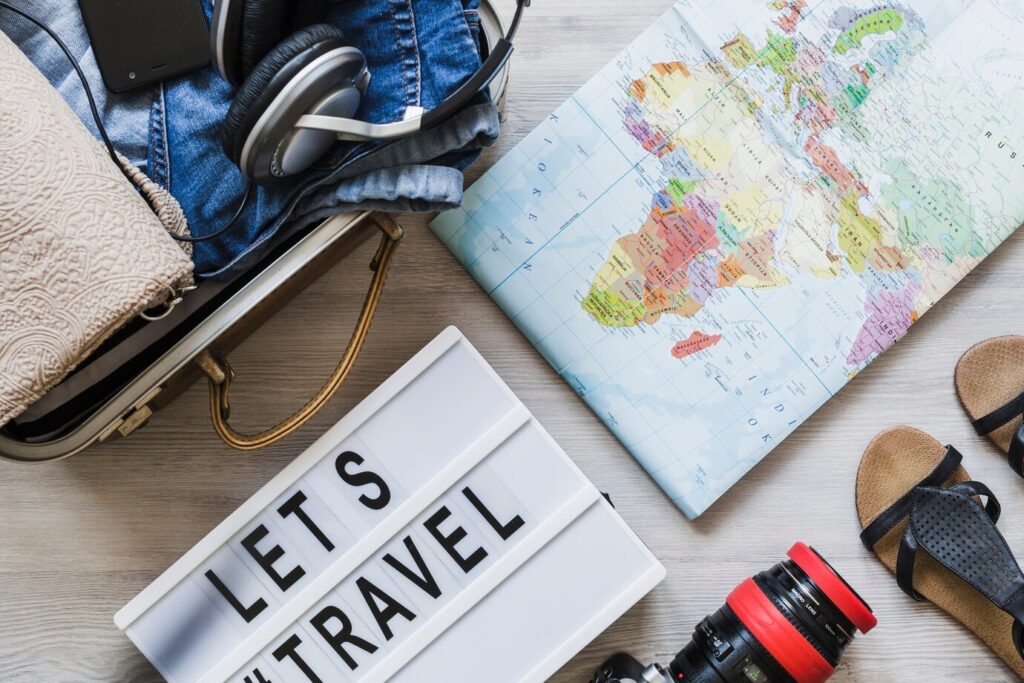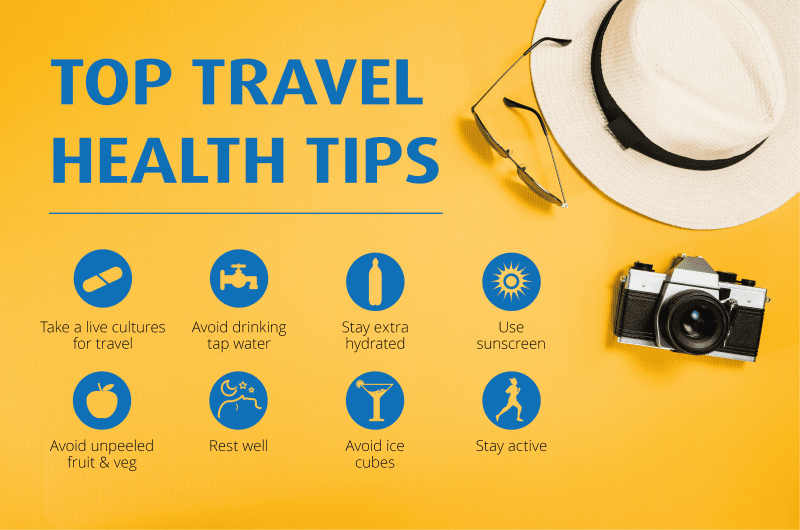Traveling abroad is one of the most exciting and enriching experiences you can have, but it can also bring stress and uncertainty. From flight delays to navigating unfamiliar places, the challenges of international travel can sometimes feel overwhelming.
However, with proper planning and preparation, you can minimize stress and maximize enjoyment. In this guide, we’ll share valuable tips for traveling abroad, ensuring your vacation is smooth, enjoyable, and stress-free.
1. Start Planning Early
The key to a stress-free vacation is early preparation. The earlier you begin planning, the more time you’ll have to address any potential issues that may arise. Start by choosing your destination and setting a travel budget. Research the best time to visit, the cost of living, and potential seasonal fluctuations in prices.
Make sure to book your flights and accommodations well in advance. Last-minute bookings often lead to higher prices and limited availability. For peace of mind, consider booking accommodations with flexible cancellation policies in case your plans change.
2. Get Your Travel Documents in Order
Before heading abroad, make sure your passport is valid for at least six months beyond your planned return date. Some countries require this to grant you entry. If you need a visa, apply early to allow for processing time, and keep in mind that some visas require specific documents, such as proof of onward travel or accommodation details.
You should also make copies of your important documents, including your passport, travel insurance, flight tickets, and hotel reservations. Keep one set with you, separate from the originals, and store another set securely back home.
3. Research Local Culture and Customs

Understanding the culture and customs of the country you’re visiting can help you avoid any cultural faux pas and enhance your travel experience. Look into the local language, common greetings, and etiquette to ensure you’re respectful and prepared.
Research common tipping practices, local transportation options, and safety concerns. Being informed will make you feel more confident and less anxious when interacting with locals and navigating new environments.
4. Plan Your Itinerary (But Leave Room for Flexibility)
Creating a rough itinerary can help ensure you see the major sights and experience the best of what your destination has to offer. However, don’t overpack your schedule. Allow for plenty of downtime to relax and explore spontaneously. Overloading your itinerary can lead to burnout and frustration, which can ruin the overall experience.
Make a list of must-see attractions, but leave gaps in your schedule for unplanned adventures. You never know what hidden gems you might discover while wandering around a new city or village.
5. Travel Insurance: A Must-Have for Peace of Mind
One of the most important tips for traveling abroad is purchasing travel insurance. While no one wants to think about things going wrong during their vacation, the reality is that unforeseen circumstances such as illness, injury, or flight cancellations can occur.
Travel insurance can help you recover financial losses and provide assistance in case of an emergency. Look for a comprehensive policy that includes medical coverage, trip cancellation, baggage loss, and emergency evacuation. This small investment can save you from major stress if things don’t go as planned.
6. Health Precautions and Vaccinations
Different countries have different health risks, so it’s important to check if any vaccinations are required before you travel. Visit your healthcare provider to discuss recommended immunizations for the region you’re visiting. In some cases, you may need to take precautions against diseases such as malaria, especially if you’re traveling to tropical or remote areas.
Carry a small first-aid kit with essential medications, such as pain relievers, allergy medicine, and any prescription drugs you may need. It’s also a good idea to bring extra supplies of any daily medications in case you experience any travel delays.
7. Pack Smart and Light
Packing efficiently can make your travels much more enjoyable. The last thing you want is to be lugging around heavy bags or dealing with lost luggage. To avoid these issues, pack light and stick to the essentials. Opt for versatile clothing items that can be mixed and matched, and always pack for the weather conditions.
Remember to pack a portable charger, necessary toiletries, and any travel accessories such as a neck pillow for long flights. Don’t forget to bring any necessary adapters or converters for your electronics.
8. Use Technology to Your Advantage
Technology can be your best friend when it comes to traveling abroad. Download useful apps for navigating your destination, translating languages, and converting currencies. Many cities also have ride-sharing apps that make getting around much easier than relying on traditional taxis.
Consider using travel management apps to organize your trip, including flights, accommodations, and activities. Having everything in one place can help you stay organized and reduce stress during your travels.
9. Money Matters: Currency and Budgeting
Before you leave, make sure you understand the currency of the country you’re visiting. Familiarize yourself with the exchange rate, and consider exchanging some money before you arrive, so you have cash on hand for immediate expenses like transportation or tips.
While credit cards are widely accepted in many countries, it’s also a good idea to have some local currency for small purchases or in case of emergencies. Avoid exchanging money at the airport, as the rates tend to be less favorable. Instead, use local ATMs or exchange services that offer better rates.
10. Keep Communication Lines Open
Staying connected with loved ones back home can provide peace of mind while traveling abroad. Set up international roaming on your phone or consider purchasing a local SIM card for cheaper rates. Many countries also offer Wi-Fi access in cafes, hotels, and public areas, so you’ll have options to stay in touch without relying on expensive data plans.
In case of an emergency, it’s also a good idea to have local emergency contacts and know how to reach your embassy or consulate. Having a plan in place for communication will reduce stress and help you stay safe during your travels.
11. Secure Your Home Before You Leave
One of the most common sources of stress when traveling abroad is worrying about your home. To put your mind at ease, take some precautions before you leave, such as securing all doors and windows, setting up timers for your lights, and asking a trusted neighbor or friend to keep an eye on your property.
If you have pets, make arrangements for their care, and ensure that someone can take care of them while you’re away. The less you have to worry about at home, the more you can focus on enjoying your vacation.
12. Stay Safe While Traveling

Safety should always be a priority when traveling abroad. Stay aware of your surroundings, especially in crowded areas or tourist hotspots. Use common sense, keep your valuables secure, and avoid flashing expensive items such as jewelry or electronics.
In some regions, it’s wise to avoid walking alone at night or venturing into unfamiliar neighborhoods. Always trust your instincts and seek out local advice if you’re unsure about any area or activity.
13. Learn Basic Phrases in the Local Language
While English is widely spoken in many tourist areas, learning a few basic phrases in the local language can go a long way in making your trip more enjoyable and respectful. Simple greetings, thank you, and directions are great places to start.
Locals will appreciate your effort to speak their language, even if it’s just a few words. It can also help you navigate situations more easily and reduce any misunderstandings.
14. Embrace the Experience
Lastly, remember that travel is all about experiencing new places, cultures, and perspectives. While there may be moments of stress, embracing the experience with an open mind and positive attitude will allow you to enjoy your trip to the fullest. Be flexible and adaptable, and don’t sweat the small stuff.
If something goes wrong, laugh it off and keep moving forward. The memories you create during your travels will last a lifetime, and the lessons learned along the way will help you become a more seasoned traveler.
Planning a stress-free vacation
Planning a stress-free vacation requires a mix of organization, flexibility, and a bit of forward-thinking. By following these tips for traveling abroad, you’ll be able to prepare for the unexpected while also enjoying the thrill of discovering new destinations. Whether you’re a seasoned traveler or a first-timer, taking the time to plan your trip properly will ensure that your vacation is smooth, fun, and memorable.
Safe travels!

